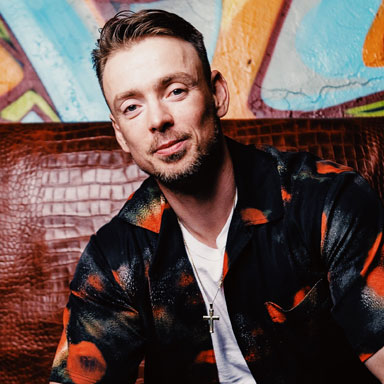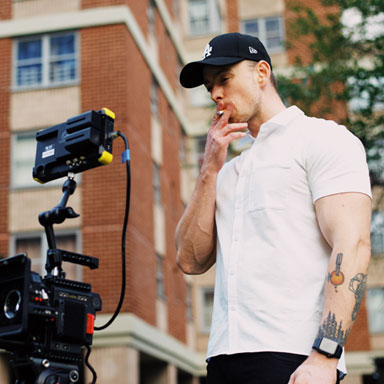‘Donnie Darko’
Do you get up each day with a feeling of premonition, as though you have had a bad dream, just to be dove into the now and future squalor of our total mindful existence? Provided that this is true, you could observe temporary rehabilitation toward the finish of Donnie Darko, Richard Kelly’s 2001 introduction highlight about a young kid who saves a world gone distraught by forfeiting his life to mend a crack in the space and time continuum. Following the verses of ‘Tears for Fears’ “Frantic World,” which torment the independent movie, one could scrutinize the story practically completely as Donnie’s vision in the extended snapshot of his momentary demise in this independent movie.
“What’s more I think that it is somewhat interesting, I think that it is somewhat pitiful. Are these fantasies in which I’m biting the dust? Are the best I’ve at any point had?”
However emotive as it very well might be powerful; and unassumingly biased, Donnie Darko is set in a pretty, middle class suburb in 1988, during the commencement to Halloween and the appointment of George H.W. Hedge? A secondary school story about growing up crossed with a science fiction time travel dream; the independent movie is completely framed in Donnie’s subjectivity. Occurrence as opposed to plotting driven, it actually has recognizable classification snares: Donnie has young adult struggles with his steady family. He sees a therapist (Katharine Ross) who stresses that he is the beginning phases of schizophrenia. His sweetheart Gretchen (Jena Malone) should be shielded from her conceivably desperate stepfather. His foes are several cohort menaces and two conservative fundamentalist educators, whose contorted conviction framework has tainted Donnie’s dynamic government funded school.
The independent movie begins with Donnie (Jake Gyllenhaal) sleeping in an empty street. As he gradually stirs to sit at the edge of a bluff, taking a gander at the immense breadth of sky over his unassuming community, a weird grin swaying among devilish and radiant plays across his face. That grin is again all the rage the last time we see him, as he creeps into bed and falls into rest, realizing that he has picked termination to save the world. The two indistinguishable grins, bookending the narrative of Donnie Darko, propose that the independent movie can be perused not as sci-fi but rather as a fantasy projection of the mind of its saint, who comprehends, but inchoately, that the eighties universe of Reaganite governmental issues and trendy fundamentalism is a hazardous spot for him and his loved ones. Or on the other hand to be less mysterious, Donnie could anticipate the deadly lengthy round of the extreme right.
In his journey in this independent movie to deflect the end times be it prodded by the legislative issues that set our country on its present self destruction mission or a break in the space-time continuum-Donnie has two aides: Frank, a six-foot metal bunny with a noxious, skull-like face who lets him know that the world will end in 28 days, six hours, 42 minutes, and twelve seconds, and Roberta Sparrow (derided by Donnie’s companions as Grandma Death), a silver haired apparition of a lady. The Philosophy of Time Travel, which is by all accounts a theosophist variant of Stephen hawking’s ‘A Brief History of Time.’ Straight to the point draws Donnie out of his highest level room, so he can circumvent being killed by a wayward plane motor that dives through the rooftop. While the specialists have no clue about where the motor has come from, Donnie comes to accept that it is proof of a flaw on schedule, or as Sparrow’s book portrays it, an equal universe, which is pulling our thought process toward destruction. For Donnie to save the world, he should make a trip in reverse on schedule to the second the plane motor fell and permit it to obliterate him, accordingly shutting the opening in the time-space continuum. As sci-fi, Donnie Darko denies the standard bound clearness of Terminator 2 or The Matrix, but the subtleties and force of Donnie’s vision call both one’s recollections of juvenile nerves and fears of the silly turn America has taken today.
Just out of USC’s film program, Kelly wrote the screenplay of this independent movie in 1997 and afterward endured three years getting it into creation. Donnie Darko debuted in Sundance in 2001, a day prior to the initiation of Bush Forty-Three, making the pictures of Bush Forty-One on the Darko family TV the indication of a period circle, oddly resounding with Donnie’s vision. In any case, the independent movie dramatic delivery at Halloween 2001, under two months after 9/11, was a fiasco. Who needed to head out to an independent movie that prophesized passing from the sky, despite the fact that J. Hoberman, writing in The Village Voice, commented that “the occasions of September 11 have delivered most motion pictures irrelevant; the appalling Donnie Darko, paradoxically, feels peculiarly comforting. . . . Kelly’s secondary school gothic appears to be impeccably sensitive to the current second.” It lived on as a 12 PM independent movie for quite some time, procuring a religious conviction, which urged Kelly in 2004 to deliver a cut on DVD, twenty minutes longer than the rich unique independent movie. Then, at that point, in 2016, while the Trump lobby was making the frenzy of Donnie’s reality an alarming reality, Arrow Video in Britain delivered a BluRay/DVD confine set of the two variants stunning 4K rebuilding efforts directed by Kelly. No independent movie, aside from perhaps Kelly’s more gawky pop spectacle Southland Tales (2006), preferred depicts Armageddon America over Donnie Darko. (Southland Tales focuses in on environmental annihilation and media immersion, which were not as “cutting edge” during Donnie’s short life.)Hawking’s axiom “Life would be lamentable on the off chance that it were actually a major buzz-kill interesting” is the key both to Kelly’s course and Gyllenhaal’s exhibition. Donnie Darko easily and unselfconsciously acquires from improbable associates Philip K. Dick and J.D. Salinger, Stanley Kubrick’s The Shining and Robert Zemeckis’ ‘Back to the Future’. Kelly grounds Donnie’s mental trips in a hyper-genuine portrayal of day to day existence: family supper table discussions; Donnie’s psychologist meetings; his abnormal romance of Gretchen, with whom, in one of the independent movie most impactful and vile scenes, he watches Evil Dead in a generally unfilled theater-until Frank is out of nowhere sitting adjacent to them. With cinematographer Steven Poster, Kelly arranged broadened skimming camera moves inside which speed fluctuates from marvelous sluggish movement to super-quick pixilation, this transient insecurity working to the high-speed in reverse breeze through the whole film as Donnie competitions to meet the passing he kept away from 28 days sooner. They likewise formulated a lighting plan that causes it to appear as though there is a foreboding shadow over the town and everybody in it. The impact is outwardly inconspicuous, yet it makes an air of wretchedness and uneasiness, which is reverberated in Gyllenhaal’s depressed look and stooped over neck and shoulders, proposing that the information in his mind is too weighty to even consider bearing. Donnie Darko would be unbelievable without Gyllenhaal’s presentation, still the most important of a fine vocation. Donnie’s weakness, his combination of delicacy and fury, his consciousness of his own cursed future, and his outsized salvage dream make us need to save him; that want may be our salvation too.




